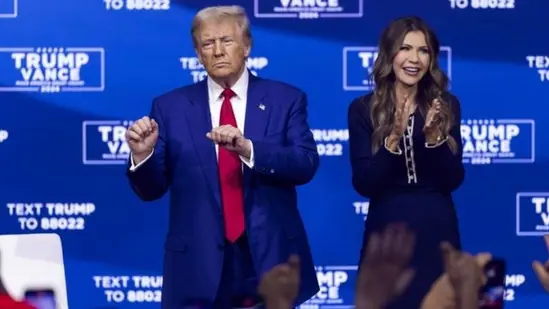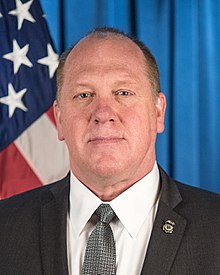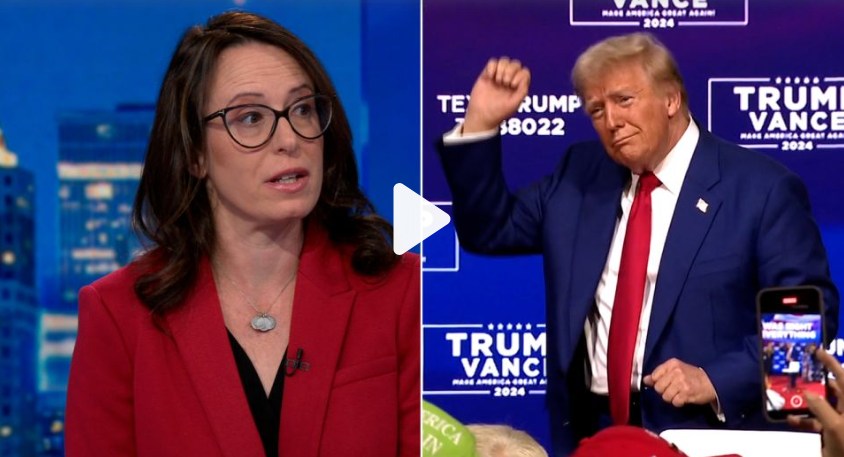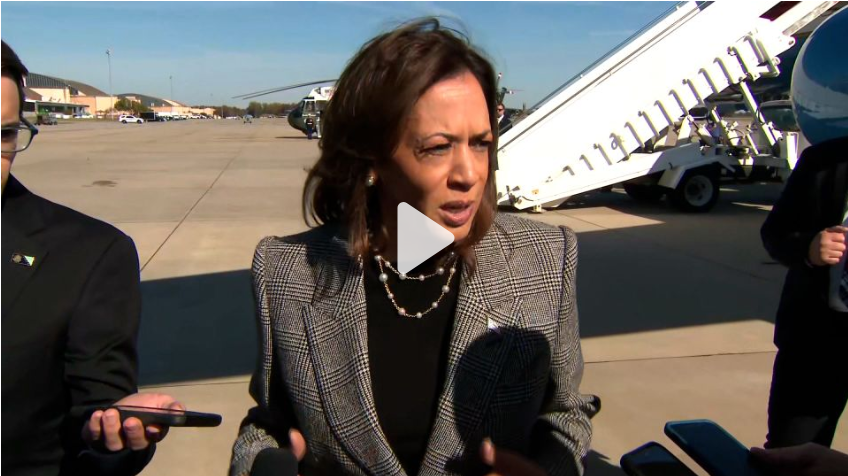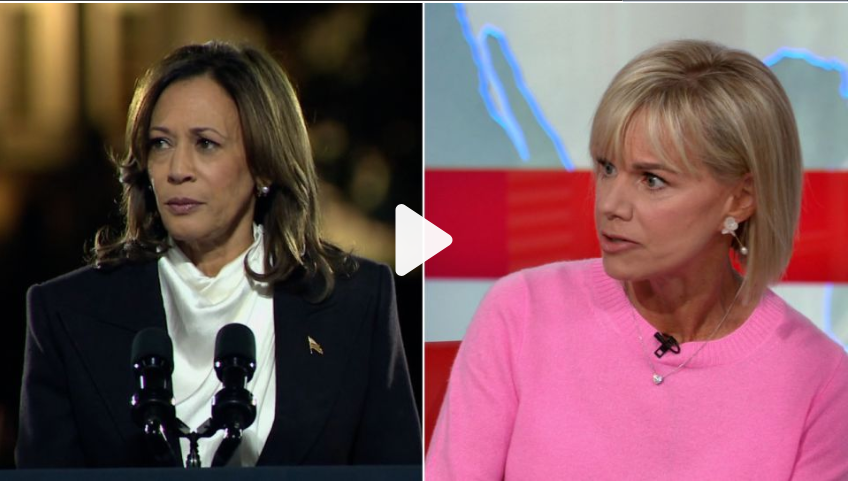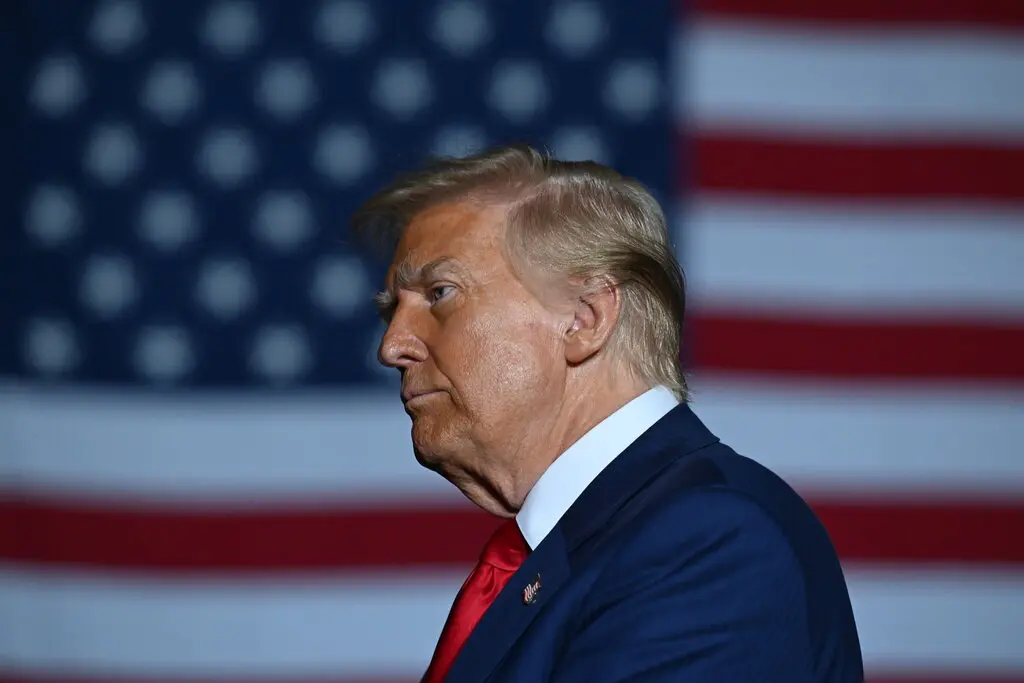
Born on June 28, 1971, Elon Musk is a prominent businessman and investor, recognized for his influential roles in SpaceX and Tesla, Inc. Musk also holds significant positions in other tech companies, including ownership of X Corp., which operates the social media platform X (formerly Twitter). His achievements also span the Boring Company, xAI, Neuralink, and OpenAI, making him one of the wealthiest individuals globally, with Forbes estimating his net worth at $247 billion as of August 2024.
Musk was born in Pretoria, South Africa, to Maye Haldeman, a model, and Errol Musk, an engineer. He attended the University of Pretoria briefly before moving to Canada, gaining citizenship through his Canadian-born mother. After enrolling at Queen’s University in Canada, Musk transferred to the University of Pennsylvania, earning degrees in economics and physics. In 1995, he moved to California to start Zip2 with his brother, Kimbal Musk, marking the beginning of his entrepreneurial journey. Compaq later acquired Zip2 for $307 million. That same year, Musk co-founded X.com, which merged with Confinity to become PayPal; in 2002, eBay acquired PayPal for $1.5 billion. Musk later used $100 million from the PayPal sale to found SpaceX.
In 2004, Musk became an early investor in Tesla Motors (now Tesla, Inc.), eventually assuming the roles of CEO and product architect. Musk also co-founded SolarCity in 2006, which Tesla later acquired and integrated as Tesla Energy. In 2013, he introduced the Hyperloop concept for high-speed travel, and in 2015, co-founded the AI research company OpenAI. Musk also launched Neuralink in 2016, focusing on brain-computer interfaces, as well as the tunnel construction company, The Boring Company. In 2022, Musk acquired Twitter for $44 billion, later rebranding it as X. In 2023, he founded xAI, an artificial intelligence company.
Musk’s outspoken views have made him a polarizing figure. He has faced criticism for making controversial statements, such as spreading COVID-19 misinformation, promoting right-wing theories, and apologizing for an antisemitic remark. His Twitter acquisition has also stirred controversy, with many noting increased hate speech, misinformation, and significant layoffs at the company.
Early Life and Education of Elon Musk
Childhood and Family Background
Elon Reeve Musk, born on June 28, 1971, in Pretoria, South Africa, has roots tracing back to British and Pennsylvania Dutch ancestry. His mother, Maye Musk, is a model and dietitian originally from Saskatchewan, Canada, who later moved to South Africa. Elon’s father, Errol Musk, a multifaceted engineer, pilot, sailor, consultant, and emerald dealer, also managed a rental lodge near the Timbavati Private Nature Reserve. Elon has two siblings: a younger brother, Kimbal, and a younger sister, Tosca, as well as four paternal half-siblings.
Family Wealth and Emerald Mining Ventures
Elon Musk’s family was relatively wealthy during his childhood. Although both Elon and his father Errol initially mentioned Errol’s partial ownership of a Zambian emerald mine, in 2023, Errol clarified that his involvement was limited to receiving a share of the emerald output from three smaller mines. Errol was actively involved in politics, having served on the Pretoria City Council for the anti-apartheid Progressive Party, and Elon has mentioned that the family shared a mutual disdain for apartheid.
Influence of Maternal Grandfather Joshua N. Haldeman
Elon’s maternal grandfather, Joshua Haldeman, was an adventurous figure, known for taking his family on record-breaking flights to Africa and Australia in a single-engine plane. Tragically, Haldeman passed away while Elon was still very young.
Schooling and Bullying Experiences
Elon attended several schools, including Bryanston High School. He has recounted his experience at a “wilderness school” where bullying was encouraged. He faced a severe incident where he was thrown down steps and badly beaten, leading to hospitalization. Elon recalls being reprimanded by his father afterward, although Errol claims this confrontation involved other complex factors.
Early Interest in Reading and Programming
Elon Musk | Elon Musk Net Worth | Elon Musk Biography
Avidly passionate about reading, Elon attributes part of his success to the books he devoured, including The Lord of the Rings, Foundation, and The Hitchhiker’s Guide to the Galaxy. At ten, he became fascinated with computers and video games, teaching himself to program on a VIC-20. By age twelve, he had created and sold his BASIC-based game, Blastar, to PC and Office Technology magazine for approximately $500.
Elon Musk attended Waterkloof House Preparatory School, Bryanston High School, and later graduated from Pretoria Boys High School. Although a good student, Musk was not exceptional, with a 61 in Afrikaans and a B in senior math. He applied for a Canadian passport through his Canadian-born mother to avoid South Africa’s mandatory military service and facilitate immigration to the United States. While awaiting passport approval, he briefly attended the University of Pretoria for five months.
In June 1989, Musk arrived in Canada, where he worked various odd jobs, including on a farm and at a lumber mill. By 1990, he enrolled at Queen’s University in Kingston, Ontario. Two years later, he transferred to the University of Pennsylvania, where he studied until 1995. Although he claimed he earned his degrees in 1995, the University of Pennsylvania awarded them in 1997: a Bachelor of Arts in Physics and a Bachelor of Science in Economics from the Wharton School. During this time, he hosted large ticketed parties to help pay tuition and developed a business plan for an electronic book-scanning service similar to Google Books.
In 1994, Musk interned in Silicon Valley at the Pinnacle Research Institute, focusing on energy storage, and at Rocket Science Games in Palo Alto. In 1995, he was accepted to a materials science graduate program at Stanford University but chose not to enroll, opting instead to join the Internet boom. He unsuccessfully applied for a job at Netscape. Reports indicate that Musk faced issues with U.S. work authorization after leaving Stanford; he claimed that his student visa transitioned to an H-1B.
Musk’s business career began in 1995, with the sale of equity in one venture financing future enterprises. Widely regarded as a serial entrepreneur, by the 2020s, several Musk-led companies had developed strategic partnerships, with some employees holding roles in multiple Musk businesses.
In 1995, Elon Musk, his brother Kimbal, and Greg Kouri embarked on their entrepreneurial journey by founding Global Link Information Network, later renamed Zip2. The company developed an Internet city guide with maps, directions, and yellow pages, targeting newspapers as its primary market. They operated out of a small rented office in Palo Alto, with Musk working tirelessly on coding the website every night. During this early entrepreneurial journey, Musk and Kimbal faced challenges with their immigration statuses, which Musk described as a “gray area”; Kimbal even suggested they might have been working as illegal immigrants. A recent Washington Post exposé from October 2024 reported that Musk worked illegally while building the company, citing an email from Musk and a funding agreement from venture capital firm Mohr Davidow Ventures as evidence.
Zip2 eventually secured contracts with The New York Times and the Chicago Tribune. Despite Musk’s ambitions to take on a larger leadership role, he was blocked from becoming CEO. In February 1999, Compaq acquired Zip2 for $307 million, netting Musk $22 million for his 7% stake—a significant milestone in his entrepreneurial journey.
Building on his success, Musk co-founded X.com, an online financial services company, in March 1999. Investing $12 million from his Zip2 earnings, Musk envisioned X.com as one of the first federally insured online banks. His decision to name the company X.com sparked skepticism among his friends, who worried the name could be misinterpreted, but Musk saw it as bold and memorable. By the end of the year, however, investors deemed Musk inexperienced and replaced him with Intuit CEO Bill Harris.
In 2000, X.com merged with Confinity to avoid competition, as Confinity’s money-transfer service PayPal was gaining popularity. Musk returned as CEO but faced internal conflicts over his preference for Microsoft-based software, causing a rift with Confinity’s co-founder Peter Thiel, who later resigned. Eventually, Musk was replaced by Thiel, who refocused the company on its money-transfer service and rebranded it as PayPal in 2001.
In 2002, PayPal was acquired by eBay for $1.5 billion in stock, marking another major achievement in Musk’s entrepreneurial journey. As PayPal’s largest shareholder with an 11.7% stake, Musk received $176 million. Years later, in 2017, Musk repurchased the X.com domain for sentimental value, and in 2022, he discussed plans for “X, the everything app.”
SpaceX
In early 2001, Elon Musk became involved with the nonprofit Mars Society and explored funding plans to place a growth chamber for plants on Mars. In October of that year, he traveled to Moscow, Russia, with Jim Cantrell and Adeo Ressi to negotiate the purchase of refurbished intercontinental ballistic missiles (ICBMs) that could deliver greenhouse payloads to space. Musk met with companies like NPO Lavochkin and Kosmotras, but he was perceived as a novice, leading the group to return to the United States without securing Russian launch services. In February 2002, they returned to Russia to seek three ICBMs and met with Kosmotras again, which offered a single rocket for $8 million, a price Musk rejected. Instead, he opted to establish his own space company, aiming to build affordable rockets. With an initial investment of $100 million, Musk founded SpaceX in May 2002, becoming its CEO and chief engineer.
SpaceX’s journey to space started with the attempted launch of its Falcon 1 rocket in 2006, which, despite failing to reach Earth orbit, earned the company a Commercial Orbital Transportation Services (COTS) contract from NASA. After two additional failed launches, which nearly drove Musk and his companies to bankruptcy, SpaceX achieved a successful orbital launch of the Falcon 1 in 2008. Subsequently, SpaceX secured a $1.6 billion Commercial Resupply Services contract from NASA for 12 flights of its Falcon 9 rocket and Dragon spacecraft to the International Space Station (ISS), taking over after the Space Shuttle’s 2011 retirement. In 2012, Dragon docked with the ISS, marking a first for a commercial spacecraft.
In pursuit of reusable rocket technology, SpaceX achieved a milestone in 2015 by landing the first stage of a Falcon 9 rocket on a land platform. Following this, SpaceX accomplished further successful landings on autonomous spaceport drone ships, ocean-based recovery platforms. In 2018, SpaceX launched the Falcon Heavy, with its inaugural mission carrying Musk’s personal Tesla Roadster as a dummy payload. Since 2019, SpaceX has been developing Starship, a fully reusable, super-heavy-lift launch vehicle aimed at replacing Falcon 9 and Falcon Heavy rockets. In 2020, SpaceX made history with Demo-2, its first crewed launch, becoming the first private company to put astronauts into orbit and dock a crewed spacecraft with the ISS. In 2024, NASA awarded SpaceX an $843 million contract to deorbit the ISS at the end of its operational life.
Starlink
In 2015, SpaceX began development of the Starlink constellation, a network of low-Earth-orbit satellites designed to provide satellite Internet access. The initial prototype satellites launched in February 2018, followed by a larger deployment in May 2019, which introduced the first 60 operational satellites. The decade-long Starlink project was projected to cost $10 billion by 2020. However, the International Astronomical Union and other critics have voiced concerns that Starlink satellites could obstruct astronomical observations and increase collision risks for spacecraft.
During the Russian invasion of Ukraine in March 2022, Elon Musk deployed Starlink terminals to Ukraine, offering essential Internet connectivity. By October 2022, Musk reported that 20,000 terminals were donated to Ukraine, including free data transfer, costing SpaceX $80 million. Despite initially requesting financial support from the U.S. Department of Defense for additional units and data subscriptions, Musk later committed to maintaining Starlink access for Ukraine, with an estimated annual cost of $400 million. Concurrently, he declined to restrict Russian state media on Starlink, attributing this stance to his commitment to free speech.
In September 2023, Ukraine requested the activation of Starlink over Crimea to target Russian naval vessels in Sevastopol. Musk declined, citing concerns that Russia might retaliate with a nuclear response.
Tesla
Tesla, Inc., originally Tesla Motors, was incorporated in July 2003 by Martin Eberhard and Marc Tarpenning, both of whom were instrumental in the company’s foundational development before Elon Musk joined. Musk led Series A investment in February 2004 with a $6.35 million investment, making him the majority shareholder and positioning him as Tesla’s board chairman. Although Musk was hands-on with Tesla Roadster design, he wasn’t heavily involved in daily operations.
In 2007, rising internal tensions and the 2007–2008 financial crisis led to Eberhard’s removal. By 2008, Musk became CEO and product architect of Tesla. A 2009 lawsuit settlement recognized Musk as a Tesla co-founder alongside Tarpenning and two others. Musk has since become the longest-tenured CEO in the automotive industry, and in 2021, he humorously adopted the title “Technoking” while remaining CEO.
Tesla launched its first all-electric sports car, the Roadster, in 2008, marking the first serial production electric vehicle to use lithium-ion battery cells. The Model S sedan followed in 2012, then the Model X crossover in 2015. The mass-market Model 3 arrived in 2017 and later became the world’s bestselling electric vehicle by 2020, surpassing one million units by June 2021. The Model Y crossover debuted in 2020 and, as of December 2023, ranks as the all-time bestselling electric and general vehicle globally. Tesla’s Cybertruck, revealed in 2019, officially launched in November 2023.
Since its IPO in 2010, Tesla stock surged, becoming the world’s most valuable automaker in 2020 and joining the S&P 500 that year. By October 2021, Tesla hit a $1 trillion market cap, marking it as the sixth US company to do so. Later that year, Musk proposed selling 10% of his Tesla shares on Twitter, resulting in $6.9 billion sold in the first week and $16.4 billion by year-end. In 2022, Musk’s sales drew SEC scrutiny over potential insider trading involving both him and his brother Kimbal Musk.
In 2022, Tesla revealed Optimus, a robot project, showcasing its ambitions in robotics. In June 2023, Musk engaged with India’s Prime Minister Narendra Modi to discuss investment opportunities in India, aiming for swift market entry.
SEC and shareholder lawsuits regarding tweets
In 2018, Elon Musk was sued by the SEC for a tweet stating that funding had been secured for potentially taking Tesla private. The lawsuit characterized the tweet as false, misleading, and damaging to investors, and sought to bar Musk from serving as CEO of publicly traded companies. Two days later, Musk settled with the SEC, without admitting or denying the SEC’s allegations. As a result, Musk and Tesla were fined $20 million each, and Musk was forced to step down for three years as Tesla chairman but was able to remain as CEO. Shareholders filed a lawsuit over the tweet, and in February 2023, a jury found Musk and Tesla not liable. Musk has stated in interviews that he does not regret posting the tweet that triggered the SEC investigation.
In 2019, Musk stated in a tweet that Tesla would build half a million cars that year. The SEC reacted by asking a court to hold him in contempt for violating the terms of the 2018 settlement agreement. A joint agreement between Musk and the SEC eventually clarified the previous agreement details, including a list of topics about which Musk needed preclearance. In 2020, a judge blocked a lawsuit that claimed a tweet by Musk regarding Tesla’s stock price (“too high imo”) violated the agreement. Freedom of Information Act (FOIA)-released records showed that the SEC concluded Musk had subsequently violated the agreement twice by tweeting regarding Tesla’s solar roof production volumes and its stock price.
SolarCity and Tesla Energy
Musk provided the initial concept and financial backing for SolarCity, founded by his cousins Lyndon and Peter Rive in 2006. By 2013, SolarCity had become the second-largest provider of solar power systems in the United States. In 2014, Musk advocated for SolarCity to construct an advanced production facility in Buffalo, New York, which would be triple the size of the largest solar plant in the U.S. Construction began in 2014 and concluded in 2017. The factory operated as a joint venture with Panasonic until early 2020.
Tesla acquired SolarCity for $2 billion in 2016 and integrated it with its battery division to form Tesla Energy. The announcement of the deal caused a more than 10% decline in Tesla’s stock price, as SolarCity was struggling with liquidity issues at the time. Several shareholder groups initiated a lawsuit against Musk and Tesla’s directors, alleging that the acquisition of SolarCity was primarily intended to benefit Musk and harmed Tesla and its shareholders. In January 2020, Tesla’s directors settled the lawsuit, leaving Musk as the only remaining defendant. Two years later, the court ruled in Musk’s favor.
Neuralink
In 2016, Elon Musk co-founded Neuralink, a neurotechnology startup company, with a significant investment of $100 million. Neuralink’s goal is to integrate the human brain with artificial intelligence (AI) by developing devices that can be implanted in the brain. This innovative technology aims to enhance memory and enable communication between devices and software. Additionally, the company seeks to create solutions for treating neurological disorders such as Alzheimer’s disease, dementia, and spinal cord injuries.
In 2019, Musk revealed plans for a device resembling a sewing machine designed to implant threads into the human brain. A paper published in October 2019 that outlined some of Neuralink’s research listed Musk as the sole author, which caused frustration among Neuralink’s researchers. At a live demonstration in 2020, Musk described one of the early devices as “a Fitbit in your skull,” claiming it could potentially cure paralysis, deafness, blindness, and other disabilities. These assertions faced criticism from many neuroscientists and publications, with the MIT Technology Review calling them “highly speculative” and labeling the event as “neuroscience theater.” During the demonstration, Musk showcased a pig with a Neuralink implant that monitored neural activity related to its sense of smell. In 2022, Neuralink announced plans to commence clinical trials by the end of the year.
Neuralink has conducted additional animal testing on macaque monkeys at the University of California, Davis’ Primate Research Center. In 2021, the company released a video showing a macaque playing the video game Pong using a Neuralink implant. However, the animal trials, which have resulted in the deaths of some monkeys, have sparked allegations of animal cruelty. The Physicians Committee for Responsible Medicine has claimed that Neuralink’s testing practices may have violated the Animal Welfare Act. Employees have reported that Musk’s pressure to hasten development has led to failed experiments and avoidable animal fatalities. In 2022, a federal investigation was launched regarding possible violations of animal welfare regulations by Neuralink. In September 2023, the Food and Drug Administration (FDA) approved Neuralink to begin human trials, with plans for a comprehensive six-year study.
The Boring Company
In 2017, Elon Musk founded The Boring Company to construct tunnels aimed at alleviating urban congestion. The company introduced plans for specialized, underground high-occupancy vehicles capable of reaching speeds of up to 150 miles per hour (240 km/h), effectively bypassing above-ground traffic in major metropolitan areas. Early in 2017, The Boring Company began discussions with regulatory agencies and initiated construction of a “test trench” measuring 30 feet (9.1 m) wide, 50 feet (15 m) long, and 15 feet (4.6 m) deep at the SpaceX facilities, as this project did not require permits. The first tunnel, located in Los Angeles and spanning less than two miles (3.2 km), was unveiled to journalists in 2018. This tunnel utilized Tesla Model X vehicles and was noted for providing a rough ride while traveling at less-than-optimal speeds. Two proposed tunnel projects announced in 2018, located in Chicago and West Los Angeles, have since been canceled. However, a tunnel system beneath the Las Vegas Convention Center was completed in early 2021, and local officials have approved further expansions of this tunnel network.
Twitter / X
Musk’s interest in acquiring Twitter dates back to 2017, when he questioned the platform’s dedication to free speech. His ex-wife, Talulah Riley, even encouraged him to purchase Twitter to combat perceived “woke-ism.” By January 2022, Musk began accumulating Twitter shares, ultimately securing a 9.2% stake by April, making him the largest shareholder. This announcement triggered a significant surge in Twitter’s stock price. On April 4, Musk agreed to join Twitter’s board with a cap on his ownership at 14.9%. However, by April 13, he made a $43 billion offer to buy the company outright at $54.20 per share. In response, Twitter’s board enacted a “poison pill” strategy to deter hostile takeovers. Despite this, Musk completed the acquisition for approximately $44 billion, financed partly through loans secured by his Tesla stock and equity financing.
Following the acquisition, Musk dismissed several key executives, including CEO Parag Agrawal, and took on the CEO role himself. He implemented a $7.99 monthly subscription model for Twitter’s verification system and significantly reduced staff numbers. Under his leadership, content moderation policies were relaxed, leading to a noted increase in hate speech and the reinstatement of controversial accounts. In December 2022, Musk disclosed internal documents regarding Twitter’s handling of the Hunter Biden laptop story, leading to allegations of government censorship, although subsequent investigations found no substantial evidence for these claims.
In late 2022, Musk initiated a poll asking users if he should step down as CEO, which resulted in a majority vote for his resignation. By mid-2023, he appointed Linda Yaccarino as CEO and transitioned to the roles of executive chairman and chief technology officer. A lawsuit filed by X against Media Matters in November 2023 alleged manipulation of the platform by exploiting ad placements next to extremist content.
Reports in 2024 indicated that the $13 billion loan Musk took out for the Twitter acquisition is regarded as one of the most disastrous financial deals since the 2008–09 financial crisis. Analysts noted a staggering $24 billion loss in equity value for the company, which translates to an estimated 79% decline in value over two years, according to Fidelity Investments.
Leadership style
Elon Musk expressed interest in acquiring Twitter as early as 2017, citing concerns about the platform’s commitment to freedom of speech. His ex-wife, Talulah Riley, encouraged him to purchase Twitter to combat what she termed “woke-ism.” In January 2022, Musk began acquiring Twitter shares. He is often regarded as a micromanager, self-identifying as a “nano-manager,” with The New York Times describing his management style as absolutist. Musk does not follow formal business plans and enforces the use of company-specific jargon among employees. He has launched several ambitious and risky projects against the advice of his advisors, such as removing front-facing radar from Tesla Autopilot.
Musk’s management style is characterized as a “carrot and stick” approach, rewarding constructive criticism while also being known for impulsive outbursts towards employees. He expects long work hours, sometimes up to 80 hours per week, and has employees sign strict non-disclosure agreements. He is known for conducting mass layoffs, particularly during crises like the Model 3 “production hell” in 2018. In 2022, he announced plans to reduce Tesla’s workforce by 10 percent due to economic concerns and suspended remote work at SpaceX and Tesla, threatening termination for those not adhering to the in-office requirement. In early 2024, he again laid off over 10 percent of Tesla’s staff.
While some praise Musk’s leadership for the success of Tesla and his other ventures, critics argue he is callous and lacks human understanding. Anecdotes in the book Power Play depict him berating employees, and the Wall Street Journal reported backlash from engineers after Musk insisted on branding Tesla vehicles as “self-driving,” which they believed put customer safety at risk, leading to resignations.
Personal life
Elon Musk became a US citizen in 2002. From the early 2000s until late 2020, he resided in California, where both Tesla and SpaceX were founded. He then relocated to Austin, Texas, citing that California had become “complacent” about its economic success. While hosting Saturday Night Live in 2021, Musk revealed that he has Asperger syndrome, although he has never been medically diagnosed.
During a South African safari in late 2000, he contracted malaria and was hospitalized in an intensive care unit in California. Musk has trained in Brazilian jiu-jitsu while preparing for a proposed fight with Mark Zuckerberg. In his leisure time, he enjoys playing video games, including Quake, Diablo IV, Elden Ring, and Polytopia. Musk has mentioned that he uses doctor-prescribed ketamine to manage occasional depression, using it “once every other week.” However, The Wall Street Journal has reported allegations of him using ketamine and other drugs recreationally.
Relationships and children
Musk has at least 12 children, one of whom is deceased. He met his first wife, Canadian author Justine Wilson, while attending Queen’s University in Ontario, Canada, and they married in 2000. Tragically, in 2002, their first child died from sudden infant death syndrome at just 10 weeks old. Following this loss, the couple utilized in vitro fertilization (IVF) to expand their family, resulting in twins in 2004 and triplets in 2006. The couple divorced in 2008, sharing custody of their children.
In 2022, the elder twin officially changed her name to Vivian Jenna Wilson, reflecting her identity as a transgender woman and adopting her mother’s surname, as she no longer wished to be associated with Musk. Musk attributed the estrangement from his daughter to what the Financial Times described as “the supposed takeover of elite schools and universities by neo-Marxists,” suggesting that her gender transition was a catalyst for his commitment to “destroy the woke mind virus.” In a July 2024 episode of Jordan Peterson’s podcast, Musk claimed that he had “lost [his] son [sic], essentially” due to gender-affirming care, stating that the term “deadnaming” signifies that his son [sic] is gone, asserting that the eldest twin “is dead, killed by the woke mind virus.” Vivian publicly responded, denouncing Musk for misrepresenting her and the context of her transition, describing him as “cold,” “quick to anger,” and “narcissistic,” recounting how his rare visits often involved criticism of her femininity.
In 2008, Musk began dating English actress Talulah Riley, marrying her two years later at Dornoch Cathedral in Scotland. The couple divorced in 2012, remarried the following year, and briefly filed for divorce in 2014 before finalizing their second divorce in 2016. Musk then had a short relationship with Amber Heard in 2017, having reportedly pursued her since 2012.
In 2018, Musk began dating Canadian musician Grimes. Grimes gave birth to their son in May 2020, initially named “X Æ A-12,” which was changed to “X Æ A-Xii” to comply with California naming laws. Their choice of name received criticism for its complexity. In December 2021, Grimes and Musk welcomed a second child, a daughter born via surrogacy. Despite this, Musk confirmed that they were “semi-separated” in September 2021, and by December, he indicated he was single. Grimes later referred to Musk as her boyfriend, emphasizing their fluid relationship, but they broke up again in March 2022. In September 2023, it was reported that they had a third child, a son, and in October 2023, Grimes sued Musk for parental rights and custody of their eldest son.
In July 2022, Insider revealed court documents indicating that Musk had fathered twins through IVF with Shivon Zilis, director of operations and special projects at Neuralink, in November 2021, shortly before Musk and Grimes had their second child via surrogate in December. This revelation raised ethical concerns regarding workplace dynamics, given that Zilis reported directly to Musk. Their third child was born via surrogacy in early 2024. Additionally, in July 2022, The Wall Street Journal reported that Musk allegedly had an affair with Nicole Shanahan, the wife of Google co-founder Sergey Brin, in 2021, which led to their divorce the following year; Musk denied these allegations. Musk also had a relationship with Australian actress Natasha Bassett, described as an “occasional girlfriend.” In October 2024, The New York Times reported that Musk purchased a Texas compound for his children and the mothers of his children.

